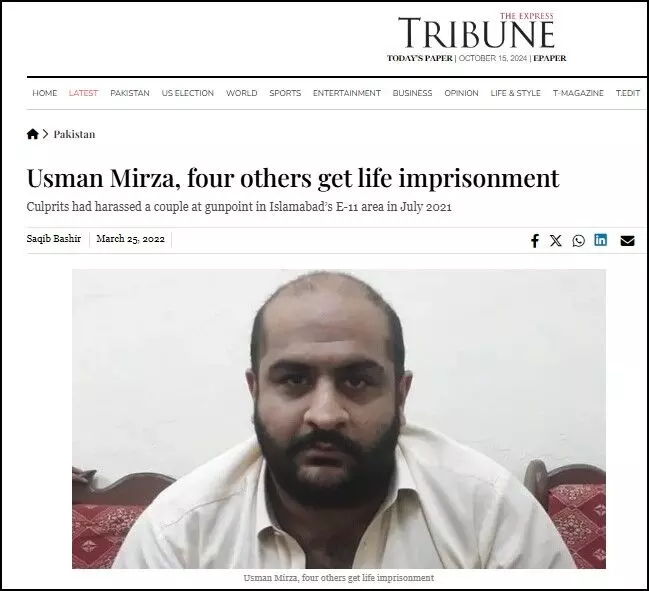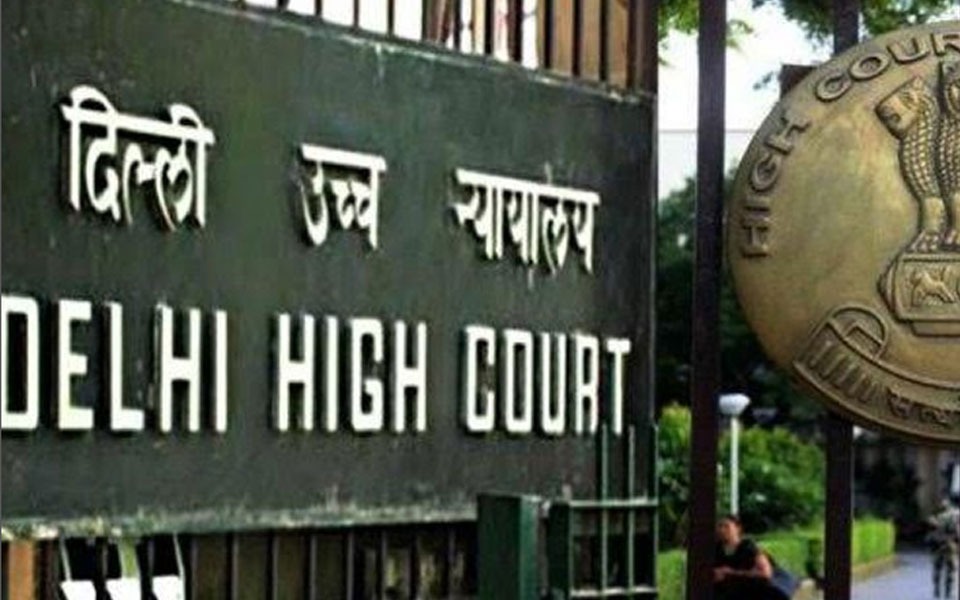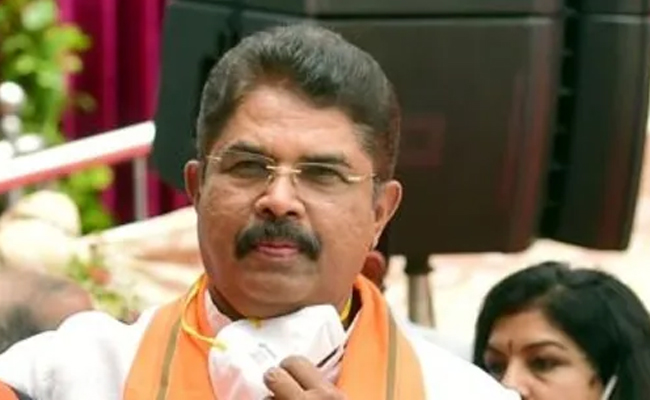Claim: The video shows Pakistan’s Punjab education minister, Rana Sikandar Hayat, assaulting a woman and her partner after they participated in a recent protest in Lahore.
Fact: The claim is false. The incident occurred in 2021, and the man in the video is Usman Mirza.
Hyderabad: A viral video shows a man assaulting a woman and her partner in a room. Those sharing the clip claim it features education minister Rana Sikandar Hayat from the Maryam Nawaz government attacking the couple for participating in a protest against the sexual assault on a woman in Lahore.
Giving a hypothetical communal angle to the incident, X handle, Baba Banaras, infamous for peddling misinformation, shared the video (trigger warning: visuals of violence) and wrote, “An incident has come to light from Pakistan which has shaken the entire world. In Pakistan’s Punjab province, Education Minister Rana Sikandar Hayat in the Maryam Nawaz government stripped a girl and assaulted her in front of a camera. The crime of that girl and her partner was that they had participated in the protest against the assault of a girl at Lahore University. Now just imagine that when a Pakistani minister can openly do this to a Muslim woman in front of the camera, then what will the people of Pakistan do with the Hindus?” (Archive)

Fact Check
NewsMeter found that the claim is false. The incident occurred in 2021. The man assaulting the couple is Usman Mirza, not Pakistan’s Punjab education minister, Rana Sikandar Hayat.
We conducted a reverse image search of the video’s keyframes and found the same visuals featured in video reports by Pakistani news outlets ARY News and BOl News. Both reports identified the main accused as Usman Mizra.
Further, we ran a keyword search and came across a report by The Tribune published on March 25, 2022, titled ‘Usman Mirza, four others get life imprisonment.’ The report carried the image of Usman Mirza, and he was sentenced after ‘a video of the culprits harassing a couple at gunpoint went viral on social media in July 2021.’
According to the report, then PM Imran Khan, upon taking note of the case, instructed the Islamabad IG to ensure the accused received the harshest possible punishment. The Islamabad High Court directed the trial court to conclude the trial within the first two months, later extending it by an additional three months. Usman Mirza, along with Idris Qayyum Butt, Mohib Khan Bangash, Hafiz Ataur Rehman and Farhan Shaheen were subsequently sentenced to life imprisonment.
In an article dated March 25, 2022, Dawn reported that a sessions court in Islamabad sentenced Usman Mirza to life imprisonment for holding a couple at gunpoint, forcing them to strip, assaulting them and filming the ordeal. The article also noted that Mirza’s accomplices and co-accused—Hafiz Ataur Rehman, Adaras Qayyum Butt, Mohib Bangash and Farhan Shaheen—were also sentenced to life in prison, while two other men, Umar Bilal and Rehan Hassan Mughal, were acquitted.
Lastly, we searched for reports accusing Rana Sikandar Hayat of sexual assault but found no such claims in the Pakistani media. Hence, we conclude that the video is from 2021 and does not show the Punjab education minister sexually assaulting a woman on video. The claim is false.
(This story was originally published by newsmeter.in, and republished by english.varthabharati.in as part of the Shakti Collective)
Let the Truth be known. If you read VB and like VB, please be a VB Supporter and Help us deliver the Truth to one and all.
New Delhi (PTI): The Delhi High Court questioned the city government on Wednesday over its failure to regulate the sale and transfer of used vehicles, while pointing out that in a recent bomb blast near the Red Fort, a second-hand car was used, making the issue more significant.
A bench of Chief Justice Devendra Kumar Upadhyaya and Justice Tushar Rao Gedela asked the Delhi government to file a detailed response on the issue of regulating authorised dealers of registered vehicles.
"A car changes four hands but the original owner has not changed. Therefore, what happens? That man (the original owner) goes to the slaughterhouse? What is this? How are you permitting this? You will take a call when two-three more bomb blasts take place?" the bench asked the Delhi government's counsel.
The bomb blast near the iconic Mughal-era monument was carried out using a second-hand car, making the issue even more significant, it said.
The court listed the matter for further hearing in January 2026.
ALSO READ: Nightclub fire: Goa court remands Luthra brothers in police custody for five days
The court was hearing a public interest litigation (PIL) plea filed by an organisation, Towards Happy Earth Foundation, highlighting the challenges in the implementation of rules 55A to 55H of the Central Motor Vehicles Rules, introduced in December 2022 to regulate authorised dealers of registered vehicles.
While the rules were intended to bring accountability to the second-hand vehicle market, the petitioner's counsel argued that they have failed in practice due to regulatory gaps and procedural hurdles.
The plea said there is a major gap in the amended framework, that is, the absence of any statutory mechanism for reporting dealer-to-dealer transfers.
"In reality, most used vehicles pass through multiple dealers before reaching the final buyer, but the rules recognise only the first transfer to the initial authorised dealer.
"As a result, the chain of custody breaks after the first step, defeating the very purpose of accountability," the petition said.
It added that because of these gaps, only a very small percentage of dealers across India have been able to obtain authorised dealer registration and in Delhi, not a single dealer has got it.
Consequently, lakhs of vehicles continue to circulate without any record of who is actually in possession of those, it said.
The plea said only a small fraction of India's estimated 30,000 to 40,000 used-vehicle dealers are registered under the authorised-dealer framework.
The petition also pointed out that the 11-year-old vehicle used in the November 10 bomb blast near the Red Fort was sold several times but was still registered in its original owner's name.
The blast near the Red Fort had claimed 15 lives.






